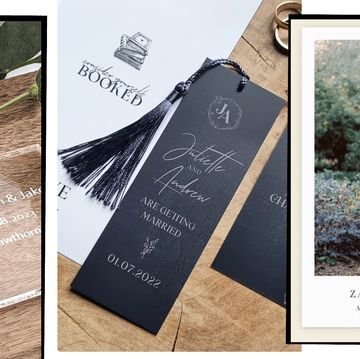In ELLE’s inaugural feminism issue starring Emma Watson (you can still download it here if you missed out), we teamed up with global communications firm Edelman Berland to ask you what it meant to be a woman today. While many results were positive, we were shocked how many of you lacked confidence, and feared the word success. Here, writer and campaigner Melissa Benn examines what exactly is holding women back…
Recently, as I mused on the findings of the ELLE and Edelman Womanhood survey on men and women’s attitudes to themselves in today’s world, I wondered why we cannot be more straightforward in our approach to what we want.
In graph after graph, column after column, we can see before our eyes the stubbornly enduring gap between who women think they are and who they seem to want to be. 21% of women felt the word confident described their true self, yet 44% aspired to have more of this quality and 69% of women admire their role models specifically for their confidence. Only 8% of women would describe themselves as successful, despite the fact that 47% of women admire their role models for their success. And just one in five say they feel in control of how to reach their goals.
So many men, in my view, simply are: without undue explanation or self-criticism.
So what is going on? Why do so many women feel less confident or happy than surely they have a right to be? Why do so many of them, 29% according to the survey, alter their persona at work or at dinner parties (24%) or even with friends (11%)? And why, according to perhaps the most poignant of the survey’s findings, do so many of them wish that they were less humble, only 10% aspire to be so, less funny, less friendly than they know themselves to be?
These are the sorts of questions with which I grappled when I researched and wrote my recent book What Should We Tell Our Daughters? a popular analysis of the pressures and pleasures of growing up female in the 21st century. In many ways, my conclusions echo the findings of the survey.
On the one hand, there are enormous opportunities for young women today, unimaginable to our mothers’ or grandmothers’ generation. From nursery through to post graduate level girls and young women outperform boys and men and many go on to have successful and interesting work lives. We all recognise that we are living in a more fluid society with the welcome break down of stale old gender stereotypes.
And yet, and yet… there remains this puzzling discrepancy between these great expectations and achievements and what many of us feel to be our ‘real selves’. Those quote marks say it all. We scrutinise ourselves, we lack confidence, we are afraid of our own ambitions and fear the judgement of others.
Researching my book, I began to piece together a coherent story about how, despite all the advances of feminism, girls today are still socialised to be excessively self-scrutinising and conforming.
For example, during adolescence, many girls become less confident about saying what they really think and feel. It’s not that they don’t know what they feel or don’t understand what’s going on. Far from it.
Conflict between an inner truth and socially acceptable forms of expression mean too many adolescent girls become outwardly good and obedient or try to be perfect. What’s more, the suppression of ordinary negative feelings, such as anger, sadness or shame, may lead to the squashing of more positive, motivating feelings like love, desire and ambition. This dangerous fragmentation of the self often stays with them as they begin to enter the adult world of work and relationships. It may explain the depressing discrepancies, again shown up in the survey, between what a significant percentage of women say they would like to do and what they actually do. 53% would like to go back into education but only 12% achieve this, 39% readily admit to wanting to be happily single for life, yet only 7% actually live that way. Conflict and suppression of true desires translates into inertia, blocking women from acting on important wishes.
What is the answer here? How can we learn to call out the ‘real me’?
As the mother of two daughters, now 18 and 20, I believe a great deal of responsibility lies with families, and particularly parents. We must listen seriously to girls from a young age, help them to identify and trust their feelings, including the difficult or powerful ones, be it despair or joy. This also means being more truthful about our own emotions and our own ambitions, however far they stray from the conventionally acceptable. School plays a part too: girls should be encouraged to explore and express their opinions on every subject under discussion. The skill of ‘oracy’, fluency in the spoken word, is just as important as that of ‘literacy’, the ability to write well.
Of course, gender discrimination is a continuing reality and forms the backdrop to so many women’s lack of self-confidence. The pay gap remains stubborn, within the lowest to the best-paid sectors, and once a woman has a family, she risks going over the cliff edge in terms of earnings and future opportunity. Getting pregnant still poses a real risk to a woman’s continuing career development.
For some leading corporate figures, like Facebook’s Sheryl Sandberg, the answer is for women to Lean In, the title of her recent best selling book. Sandberg thinks women should fake confidence even if they do not feel it and not let their desire for a family interfere with career success. Easier said than done. If things are really going to change, including women feeling more comfortable in the corporate and public world, men need genuinely to share care of home and children, including agreeing to work part-time if necessary. Employers and government must devise policies that help both parents manage those periods in their work life when the demands - and pleasures! - of young children are at their most intense.
But women, too, must become more honest and more bold: to stand our ground about what interests us and to stop caring as much about what others think. With luck and courage, the gap between some fantasy perfect self and our real struggling wonderfully imperfect selves might close up allowing space for the ‘real me’ to emerge but without those stifling, checking-up-on-self, quote marks.
Melissa Benn is a writer and campaigner. Her latest book is ‘What Should We Tell Our Daughters? The Pleasures and Pressures of Growing Up Female.’ Available from Hodder in paperback £8.99












